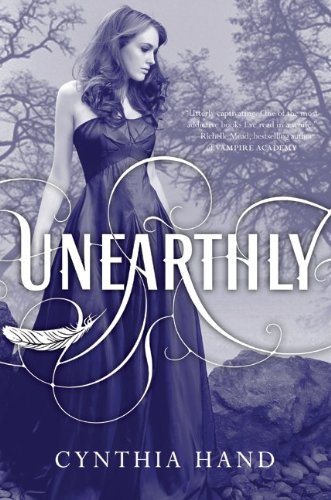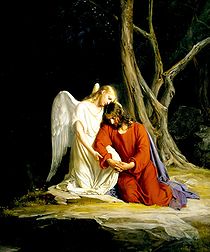Author Holly Weiss was kind enough to do an interview for her debut novel
Crestmont! She has also offered up a
signed copy of her book for
giveaway. She has also included a
Crestmont bookmark
(to enter, fill out form at bottom of post). I finished reading this book around the holidays & felt a great connection to the Crestmont Inn & the richness of its history & continuing traditions. It was a fun, sweet read.
Released: April 2010
Publisher: Star Publish
Pages: 309
"A dream, after all, needn't be fueled by particulars, only by desire."
So notes main character, Gracie Antes, in CRESTMONT, a historical fiction gem set in the 1920s.
Determined to take control of her life, sheltered Gracie Antes leaves her unhappy home in 1925 to pursue her dream of a singing career. On her way to the big city, she accepts a job as a housemaid at the bustling Crestmont Inn. Once there, Gracie finds a life-changing encounter with opera singer Rosa Ponselle, family she never imagined could be hers, and a man with a mysterious past. Relive the 1920s with a colorful cast of characters. Discover with Gracie that sometimes we must trade loss for happiness.
Set in Eagles Mere, Pennsylvania, the story is interwoven with details about the town, the rich history of The Crestmont Inn, and the family who passed ownership from one generation to the next.
Many attempts have been made to explain how the mountaintop lake nestled in this tiny town came to be. Crestmont gives a new twist to an old Native American legend, setting the tone of grace around which the story is built.
Let the period of the Roaring Twenties spark your interest with its unique social mores, fashion, jazz, and yes, a little bootlegging thrown in for pizzazz.
 First off, how did you learn about the small town of Eagles Mere, Pennsylvania?
First off, how did you learn about the small town of Eagles Mere, Pennsylvania?
I want to thank you for this opportunity to do an interview on Through the Pages. I think your blog is creative, well-researched and in-depth, and I’m honored to be here.
My husband and I were looking for a place to stay overnight to break up a long drive home from visiting my family. I found The Crestmont Inn on a lark on the internet. Once in the charming mountaintop town of Eagles Mere, I was hooked. By the way, the permanent residency there is only 127 people!
Have you always wanted to write a novel? What inspired you to write Crestmont?
I’ve always enjoyed writing, but was not serious about it until 2006. I sang professionally for thirty-five years. My main means of creative expression was through song. But five years ago, I contracted Post-Polio Syndrome, a late-life extension of the polio I had as a child. The increased weakness and fatigue put an end to my singing career. God led me in the direction of writing. One voice led to another, so to speak. Writing is now my means of creative expression, but music will always be an integral part of me.

Our one-night stay at the inn inspired me to write Crestmont. The restful atmosphere of the inn, the graciousness of the innkeepers and the beauty of the surrounding area captivated me. More importantly for the book, the rich history of the inn struck me. We stayed in The Evergreen Lodge, which was converted into its current form from staff quarters built in 1926. Small staff rooms that housed two or three waitresses in the 1920s through the 1970s were cut through to create the large and luxurious suite where we stayed. Original transoms over the doors and antiques from the inn’s early years perked my interest about how these staffers lived and worked.
William Warner's ideas for the future Crestmont, as you wrote them, sound ideal - the place for the perfect getaway. How did your stay there compare to his early vision?
 |
| the original Crestmont Inn |
William Warner built the Crestmont Inn in 1899 to provide respite for people pummeled by the stress of everyday life. The current owners, the Mulford’s, have carried on that tradition. Foresight and attention to the needs of guests who walk through the Crestmont Inn’s doors are their hallmarks. Each time I visited to research and write mementos from the old inn, such as a brochure from 1904, postcards from the 1920s era, old stationery, had thoughtfully been placed in my guest room. The Mulford’s own stories about “difficult and unusual guests” found their way into the novel. The scene where Margaret Woods pulls the burning tablecloth out of the fireplace actually happened in 2003, not 1927. Anything I needed along the way, they gladly gave. They gave me the image of the porch filigree which I used on the cover of “Crestmont” was from their professional photo shoot. When I had a book signing in Eagles Mere in August, the Mulford’s hosted an open house for me and even arranged for a family who was staying at the inn to play Celtic music on the porch. Creative people who produce seemingly effortless special touches draw guests back time after time.
Which character do you most relate to? Was there a character that was difficult to write/create? Did you base any of the characters on people you know?
Yes, I did. I based both Margaret Woods and Gracie on aspects of myself in different phases of my life. Today I identify most with Margaret Woods. We are both type A’s, are overworked, and struggle to balance family and our professions. Margaret has difficulty letting go of her grief after her father’s death. It was no accident that many of those scenes were written the year after my mother passed away. Writing them was very therapeutic for my grief process.
Drawing a character from one’s own life carries with it the danger of assuming self- absorption when the writer is asked to articulate the character’s origin. Without becoming overly personal, I’ll simply say that Gracie begins the novel in a somewhat broken emotional place similar to where I found myself twenty years ago. Some reviewers have called her everything from “refreshingly naïve” to “weak and timid.” I stand by her characterization. What is important to me is not where a person starts but how she stretches herself. What happens to us doesn’t count, but rather what we make of it. Long before self-help books were on the shelf, Gracie struggled to find herself — and flourished. I’d rather you read her journey than to tell you mine.
Bessie was challenging, but enjoyable to write. She says and does everything your mother warns you not to. Nine-year-old Eleanor is the first in “Crestmont” to recognize that Bessie had hurtful things in her life and that her abrasive conduct is a defense mechanism. Inventing Bessie’s “lingo” was a blast. Whenever my husband would read a section where Bessie said, “Slammin’ Jack,” he’d ask me, bewildered, where that expression came from. I would just shake my head and say “Out of Bessie’s mouth!”
 |
| Rosa Ponselle |
Singing plays a big part in this novel with Gracie's character & the appearance of historical opera singer Rosa Ponselle. What is your personal history with singing, & why was it important to include it in Crestmont?Singing has been a huge part of my life for over thirty-five years—as a soloist, on the opera stage and as a teacher of singing, so I think it was inevitable that much of that spilled over into Crestmont. Gracie meets a famous opera singer, Rosa Ponselle, who is doing a concert at the Crestmont. They become close and Ponselle gives Gracie a voice lesson. I wanted my voice students to enjoy that aspect of the novel.
Although I had to give up my own singing career, including details about a singer’s life in the character of Rosa Ponselle was fun. Ponselle’s conviction that you must sing what you feel will touch others comes from my own experience. Miss Ponselle and I have something in common also. She retired from the opera stage at a fairly young age as well.
What responsibility did you feel, if any, to the Crestmont Inn & its founders by writing a story that would bring this small mountain treasure & its history to life?

It was a daunting responsibility which I took very seriously! I travelled to Eagles Mere, PA, to the current day Crestmont Inn, several times during the writing of the novel to interview the current owners, former staff and townspeople. People who were on staff at the “old” Crestmont – the one I refer to as the “big house” in the book, gave me floor plans and photographs of the real owners and many of the inn itself. When people in Eagles Mere heard I was writing a book about the Crestmont, they perked up and said things like, “My aunt loved working there.” Or “Oh, that old Crestmont was quite a place.” I wanted to be true to their memories. During one of my Crestmont signings, an elderly lady brought me photos and mementoes from when she worked there as a teenager. She was thrilled to share them with someone else who cared about the old Crestmont. I was honored she chose me.
Gracie started out as a fairly self-isolated character. What was significant about the relationships she eventually made with those around her?Gracie had to learn that it was okay to be Gracie. She found little support from her own family, so forging new relationships helped her to figure out who she was. The fact that the Woods, Dorothy, Olivia and Isaiah genuinely liked and cared for her was a huge boost to her self-esteem. She felt safe enough with them to walk down a path of self-discovery.
 What was the single most important thing you wanted to relate to readers when writing this book?
What was the single most important thing you wanted to relate to readers when writing this book? Grace—favoring others with unmerited kindnesses—always triumphs. I purposefully named my main character Grace (later, Gracie) because I wanted that theme to pervade the novel. I introduced the concept when I gave a different twist to a Native American legend. Instead of flooding the lake out of anger, in Crestmont, the Great Spirit filled the lake with tears of forgiveness.
You wrote a strong theme of family into Crestmont. How important is family both to you and to the story?
I wanted family to be key in the concept of the book, but not in the traditional sense. My father always said, “If you don’t have family, you don’t have anything.” I agree with him completely, but one thing I wanted to show in Crestmont that family can also be found outside of one’s biological family. The novel is dedicated to my parents, who are both gone now. It would have made them happy to know that I decided to write my grandfather, Warren Sloan, into the novel. He invented the automatic pinsetter for bowling alleys (although he sold it shortly after) and gave me the perfect way to round out PT’s earlier life with Sloan as his mentor. Neither Gracie nor PT has family to speak of, but find it at the Crestmont.
I also decided to include my husband‘s poetry in the book. He is the “Paper bag Poet” whose poems prompt Gracie’s yearning for love. He actually wrote one of the poems to me while we were courting. How could I leave that out?
Do you plan to write anything in the future?
I am busy writing reviews of newly released books now. For my next novel, I want to explore the One Voice Led to Another concept. I may retell my “polio/professional singer becomes writer story”, or I may use some amazing life transition stories shared with me by friends.
If you could travel to any time & place in history, when & where would you go? Why?
I’d love to be in a room filled with all the books I’d like to read – and actually have the time to read them! In doing that, I could travel all over the globe and history. Having my hubby next to me while we sip cappuccino and read would be the ultimate delight!











































_-_Song_of_the_Angels_(1881).jpg/240px-William-Adolphe_Bouguereau_(1825-1905)_-_Song_of_the_Angels_(1881).jpg)






